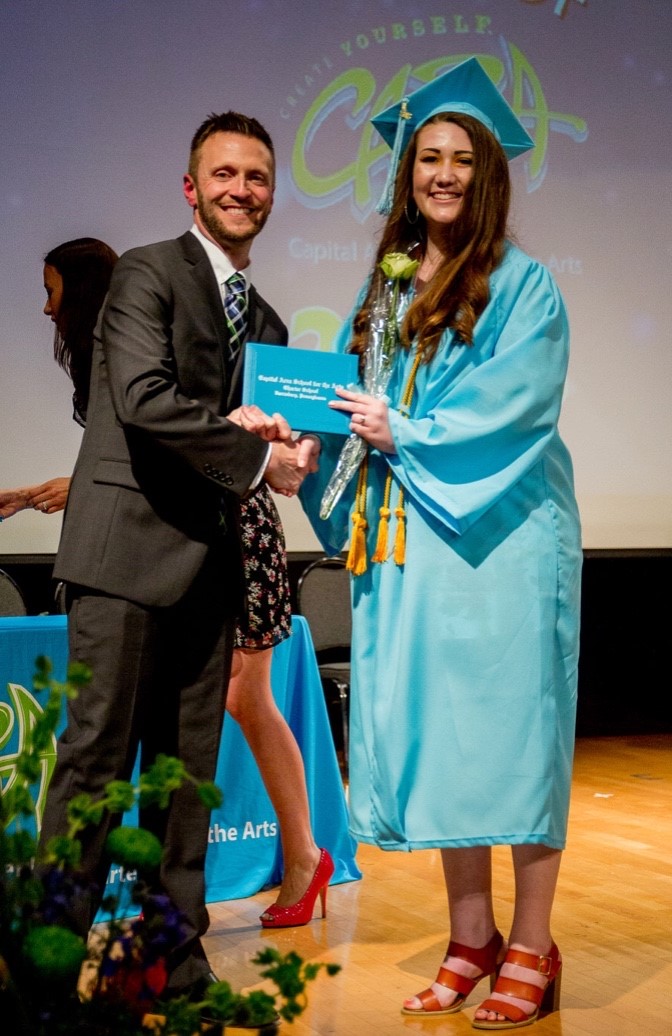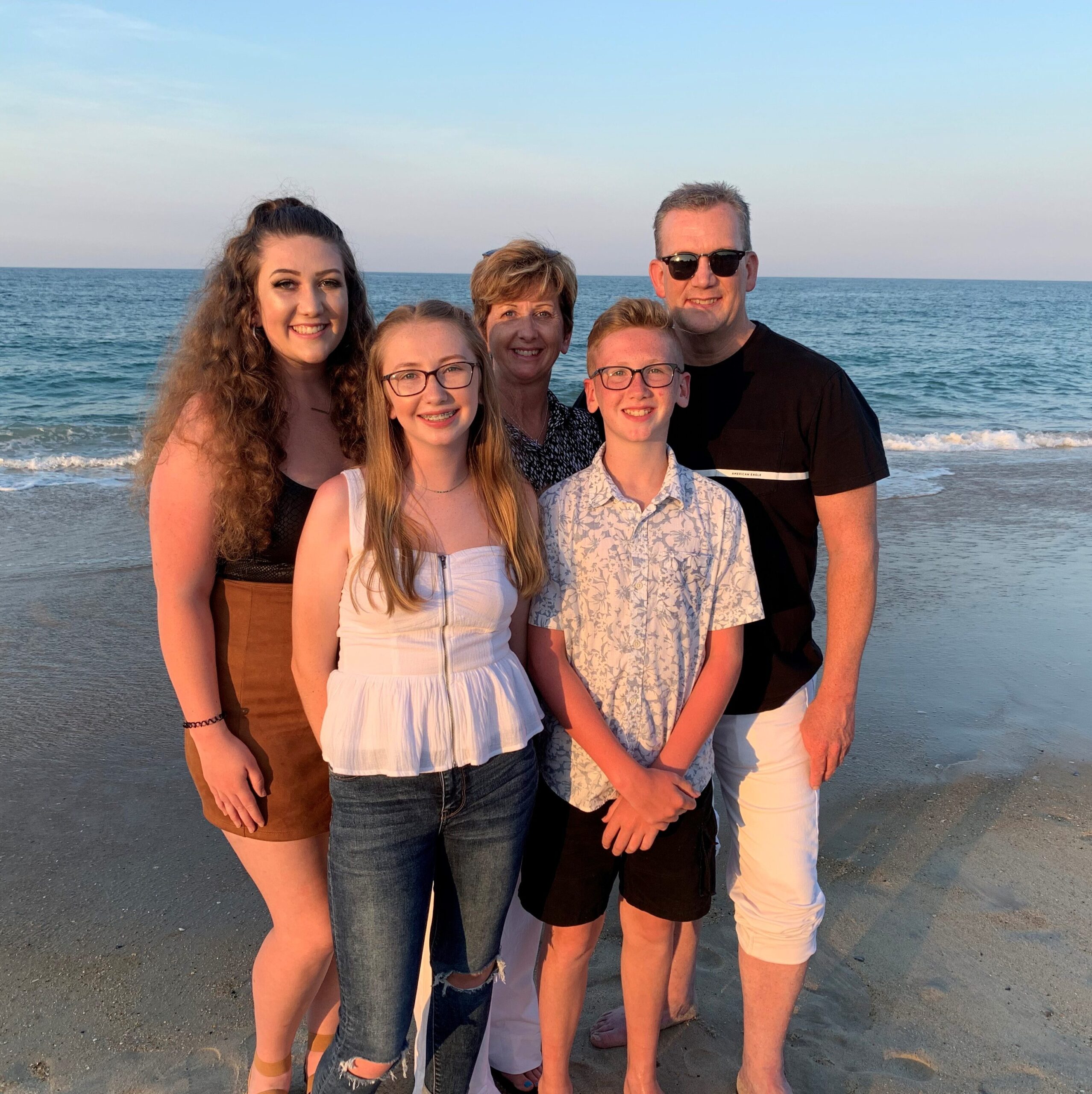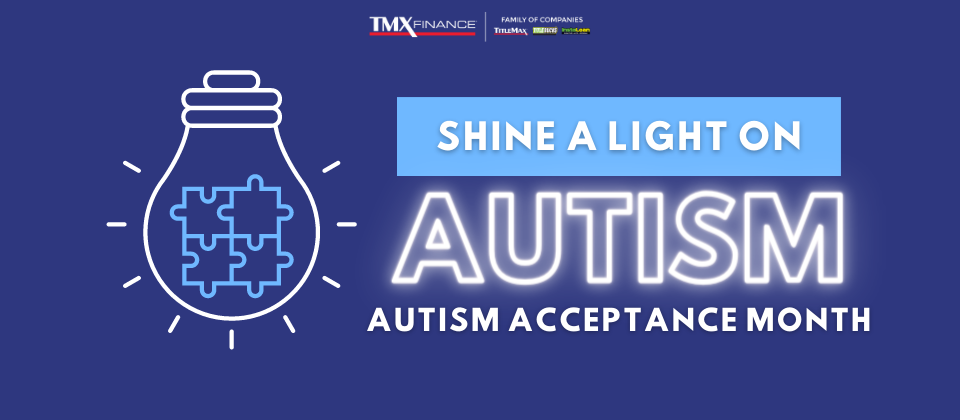My name is Hannah Reen and I’m 22 years old. I’ve been with the Company for almost six months and work in the Savannah corporate office as the Multi-Media and Content Producer. I have autism.

People often describe individuals with Asperger’s Syndrome as people who are on the “higher functioning” side of the spectrum. In relative comparison, that is true. Autism is a spectrum that includes different types, or “levels,” to categorize and appropriately identify a person. So, in a sense, I am “higher functioning” than others on the spectrum that deal with different cognitive development issues. However, at the same time, the term “high functioning” can also be a harmful description to those labeled as such. You see, often times I’m labeled as “high functioning” because I can assimilate myself to look like a “normal” person. I’m able to go about most days without showing any signs of my cognitive struggles or internal challenges that I may be having, but that doesn’t mean they don’t exist, and it certainly doesn’t make my struggles any easier to cope with. Growing up, I’ve been subconsciously learning how to “mask” most of my symptoms. This is why I wasn’t officially diagnosed until I was sixteen-years-old.
When people first meet me, they never immediately assume that I have a disability. It’s probably because people often associate the word “autism” with someone that shows more signs of a physical disability. And while the Autism Spectrum community includes many of those individuals, you’d be surprised by how many of us go “under the radar,” per se. In my case, I happen to have Asperger’s Syndrome, which is a developmental disorder that affects my ability to effectively socialize and communicate (quite ironic considering I work in the Communications department). Now, anyone who has met me at work or talked to me in a social setting may still raise an eyebrow at that statement, because the way that I carry myself on a daily basis contradicts that definition. That’s because I’ve had time to learn and teach myself these things, and I can only accomplish this with the right treatment and medication. However, it doesn’t mean that these skills come naturally to me, and it certainly hasn’t been easy.

One thing not a lot of people know about is that Asperger’s Syndrome is a lot less detectible in females than in males, which is why we often go undiagnosed for a majority of our lives. Females are known to use “masking” when it comes to their symptoms, so it becomes harder to identify. In my case, I wasn’t diagnosed until my teenage years because my symptoms were brushed off as signs of me just being an “emotional woman” or a “drama queen.” When I was younger, I had no clue what was going on in my own head, much less was I able to find the words to describe what I was feeling. If I’m being honest, it’s a terrible feeling: being stuck in your own head, knowing something is wrong, but not knowing what. I was unable to describe what was wrong to others, so I was unable to seek the correct help. I didn’t know it at the time, but the reason I would cry or overreact to everything was because I was trying to subconsciously draw attention to the fact that something was wrong. I wanted my parents or other adults to pay more attention to me in hopes they would understand me and identify my stressors. But, when you’re a smart kid, placed in all the advanced programs at school, people would never assume you had a problem, and it didn’t seem to show in my performance. I was a star student, excelling in almost everything, but I was also very shy. I had begun to keep to myself. I never wanted to draw any attention to myself because I didn’t want to stick out or be bullied. Being in a large classroom filled with other kids overwhelmed me, and it drained my social battery, so I didn’t have the energy to participate in any form of social environment.

Autistic people are often told that we overreact or feel things too strongly in comparison to everyone else. As a result, we might start masking and restricting our emotions and ways of expressing them, unintentionally affecting our ability to process them. We might even start to think that we can’t trust our emotions at all, so we start to mimic those around us instead, further disconnecting ourselves from who we actually are. This had been the case for most of my life. But now, after being correctly diagnosed, I try my hardest to always be my authentic self. I shouldn’t have to hold back how I’m feeling in order to feel accepted in a society that has always deemed me “socially awkward.” It’s okay for me to have my special interests; it’s okay for me to be a picky eater, and it’s okay for me to not always understand social cues. Also, I shouldn’t have to apologize for expressing myself whenever I do face a new stressor or need a certain accommodation in order to help me function. That’s why it is so important for me to advocate for others in the community who might not be able to advocate for themselves.
I’ve been privileged enough to have taken the time to learn about myself and what causes me to feel the way I do. I’m constantly teaching myself how to effectively communicate with others and teach them how to work with me in the best way possible. It’s so important to help others that aren’t in the community understand because we all deserve to be understood. I’m lucky to have a job that embraces my disability and gives me a platform to share my story. I may have a disability, but it is not my identity. If anything, I was happy to learn that I was diagnosed because it suddenly opened up a clearer path of understanding about myself. It’s as if I was given a road map to my brain, which made it easier to help others understand me as well.
When I first meet people, I always tell them the easiest way to work with me is to communicate with me directly and make your intentions and expectations clear. I’m the type of person who functions so much better with a schedule and a plan, and feelings of uncertainty or spontaneity often create lots of anxiety or stress. I basically plan out everything, including my responses as other people are speaking to me. For example, I usually need to mentally rehearse making a phone call to someone who I don’t know. Growing up, my mom would always ask me why it was such a big deal for me to call and order a pizza on the phone. Scary, I know (note the sarcasm there because I wouldn’t have been able to recognize it otherwise, ha!). It wasn’t until I was older that I realized the reason why I found this to be such a big challenge for me, when I could talk to my best friend on the phone for hours. Whenever I meet someone, I study them. I pay attention to the tone in their voice, their gestures, analyze their facial expressions to try and determine their emotion and intent behind what they are saying. When I get to know a person well enough, I already have a rolodex of information about them stored in my brain, so I know what to expect. However, with people I don’t know well enough, or I’ve never met before, I struggle to comprehend the words they say to me because I can’t see their face, and I’m unaware of their intent. This leads me to often stutter over the phone because I can’t tell when it is my turn to talk.

It’s a bunch of little things that really make up my disability, and my Asperger’s often goes hand-in-hand with the other disorders that I have: anxiety and ADHD. Every person on the Autism Spectrum is different, however, and it’s hard to put us in one specific box when we fit into many. I don’t think I ever want to be boxed in to just one thing. That’s why I have so many hobbies and interests and I’m constantly teaching myself new things. I always need a new project or something new to focus on so I don’t have to remain still and repetitive, or else I can fall into old and familiar habits. Familiar isn’t necessarily a bad thing though; it can bring me a lot of comfort. That’s why I always resort to watching the same tv shows a million times or rereading my favorite book at least once a year. It’s familiar and predictable and allows me to stay inside of my comfort zone. I’ve really been trying to push myself recently though so I can expand my abilities and embrace the unpredictable because I’ve realized that I can’t control everything, and that’s okay. For now, I take it day by day.
If I can give a word of advice to anyone who knows or works with someone with autism, whether child or adult, it would simply be to listen. Allowing us to express ourselves without fear of judgement is one of the best things you can do, and you’d be amazed at how much we’ll open up when we know we are in a safe space. Every person on the spectrum is different, but we are all human. My disability is not a flaw, but rather a unique characteristic about me that deserves to be celebrated.
